Lama Awada
Imprint of mechanical forces on antibody affinity maturation in B cell immune responses
Team: Pierre Milpied (CIML) - Philippe Robert (LAI)
Her background
October 2020 - present | CENTURI PhD student
2018 - 2019 | MSc Host-Infectious Agent Interaction
2017 - 2018 | MSc in Biochemistry - Lebanese University (Lebanon)
2014 - 2017 | BSc in Biochemistry - Lebanese University (Lebanon)
Contact
About her PhD project
Antibodies are lifesaving biomolecules – major effectors of vaccines efficacy and powerful therapeutics for cancer treatment. In natural immunity, highly potent antibodies are produced by thedescendants of a single antigen-specific B cell after complex processes of cellular and molecular maturation. Affinity maturation of antigen-specific B cells, in which the affinity of the antibodies increases from the μM to the nM range, involves iterative cycles of (i) de novo mutations in the antibody coding genes followed by (ii) selection of the B cells expressing mutated antibody proteins with competitive antigen binding, in a process reminiscent of Darwinian evolution. Despite some situations where antibody function may occur in solution (e.g. blocking), most antibody functions occur at cell-cell interfaces. In particular, the selection of antibodyexpressing B cells during affinity maturation requires the uptake of membrane antibody-bound antigen from lymph node stromal cells. At 2D cell-cell interfaces, antibody binding properties are under the influence of disruptive mechanical forces exerted by cells, and 3D characterization of antibody binding is no longer relevant. Yet it is currently unknown whether affinity maturation specifically improves antibodies binding under force, or which mechanical properties of antibodies may be selected in immune responses in vivo. Here we propose to measure in vitro binding properties of antibodies at various stages of in vivo affinity maturation, using state-of-the-art biophysical methods adapted to characterize antibody-antigen bonds in 2D and in response to mechanical force. Our project will solve whether mechanical constraints on antibodies exert selective pressure during B cell affinity maturation in immune responses.







